
If you're new to the Flipping the Focus community or have been following since the beginning, I've been sharing my inquiries, reflections, and growth concerning school-level leadership--certainly, a form of leadership that I would describe as relational, engendering transformation, grounded as instructional, and seeking to be distributed.
In the previous two posts of this three-part series, I described my position and learning regarding effective leadership (Part 1; read more) and reported on cycles of inquiry, co-leading a professional learning community (Part 2; read more).
In the this third post, I am contemplating the future of/for school-level leadership as being next-level, student-driven--that is, with an emphasis on school improvement through culturing student voice. Through my role as a system-level Learning Partner (Upper Canada DSB), some of the inspiration for this writing is being drawn from the self-monitoring and reflection I've engaged in since September 2017. As Professor John Hattie (2013) espouses, it is important that we consider our impact as teachers and leaders on student learning. By extension, I am applying a plan-act-assess-reflect process to the collaborative work I am privileged to co-facilitate with school-level, numeracy and literacy learning teams this year.

Agency, Holland explicates, means that students "assume control over their learning". And to assume control, "classrooms need to embrace a culture of shared intellectual growth and a deep respect of the individual voices that contribute to the development of the group."
I agree with Holland's perspective. The success we all experience is borne out of students becoming leaders of their own learning. And across Ontario, we're recognizing the importance of students' voices when it comes to improving student achievement, engagement, and well-being (Student Voice, 2013). 2018 can very well be a "Year of Agency," and getting there will require that we move forward from expression and consultation to building and leveraging collective capacity--that is, growing participation and establishing partnerships that will move student voice to action.
In this post, I offer up an example of a collaborative inquiry that could be enacted at the school level for the cultural growth of such environments, where the collective of lead learners includes administration, teachers, and students. Also, you'll find some resources I've constructed that might be worthy of testing for guiding your journey and survey tools for gathering perceptual data to inform your teams' improvement planning processes.
As you continue with today's post, I'd like to point back to a summary (Capacity Building Series monograph, below) on student voice and other resources. I think that you'll find these works powerful in that they can help us to connect to/reflect upon practice and frame our thinking for new considerations/learning.
Protocol: As you read through the monograph, consider what 1) affirms your thinking, 2) challenges your thinking/leaves you wondering, and/or 3) is new learning/you'd like to take action on.
| cbs_studentvoice.pdf |
Based on the reading protocol provided for this monograph, feel free to take some time to post a comment for others. Through sharing, we can support one another to think more deeply, spur further reflection, and/or grow our professional learning network for future collaboration.
If your interest is piqued concerning the role of student voice in your classroom, at the school level, or at the district level, you might find visiting the Ministry of Education's (Ontario) Student Voice webpage beneficial. Check out the video (below) as an introduction for ways through which you can work further alongside your students in improving their educational experience.
After reviewing the information provided on the Student Voice webpage, I was drawn quite quickly to both the MSAC (Minister's Student Advisory Council) and StaR (Students as Researchers) sections, as I had explored incorporating a student research component into culturing discourse in a Mathematics classroom (2015-17...read more). Perhaps, the following questions might lend themselves as guiding questions or provocations for what could be explored collaboratively:
Question 1: With regards to MSAC, what might it take for schools to have their own SAC--specifically, one (or several) that focus upon improvement practices in educational programming (see image, below)?
Question 2: In relation to Question 1, what might it take for schools to cultivate "Students as Researchers" as an integral component to continuous school improvement? And how might this intersect with our own teacher-researcher/practitioner, learning teams approach to school improvement?
Question 3: (Post to comments for others.)
As you continue to explore the information provided on the Student Voice webpage(s), you'll come across the "Nine Student Voice Indicators", as well as an annotated list of all of the MSAC-based inquiries that have been documented since the "Nine...Indicators." The contributions (indicators) brought forth by the first MSAC (and subsequent contributions) represent what students from across Ontario deem as being important to improving student engagement and learning.
Below, you'll see a list of the nine indicators, along with an indicator that I'm proposing ("New"; expanded upon in the next section, below) for a school-level, collective capacity building team--a team, made up of both teachers and students, that is charged with collaboratively inquiring into improving educational programming.
For the remainder of this post, and with respect to the proposition (above), I would like to share a vision for a collaborative inquiry that could be enacted in any classroom or school and across any subject and/or an integration of subject areas.
Like all schools across Ontario, you are likely in a leadership position and/or a member of a school-based learning team in Literacy, Numeracy, and/or involved in another aspect of school improvement planning. What is being presented is not a new idea; rather, it is an extension, as it draws upon the characteristics of the StaR role for students (mentioned, above).
"...[t]his effort to involve students in research is not meant to exclude an adult presence. The goal is to combine the experiences and efforts of both adults and students for mutual benefit...By making students and adults equal partners in collaborative inquiry we can support active engagement of students in questions of interest to them...Students and teachers develop a sense of shared responsibility for the quality and conditions of teaching and learning, both within particular classrooms and more generally within the school community."
II) Goal Setting: Process for School Improvement Planning for Student Achievement, Engagement & Well-Being
Prior to embarking on the improvement planning process, it is of paramount importance to collect, review, and interpret different sources data to setting an overall, year-long goal. Below, I've included a screenshot and attachment for the Improvement Planning and Assessment Tool (available on the Virtual Fall 2017-RMS/SIM K-12 website).
With respect to growing a shared responsibility through actualization of Student Voice, you'll notice that "Perceptual Data" has been highlighted.
| handout_e-one_ipat_10-02-2017.pdf |
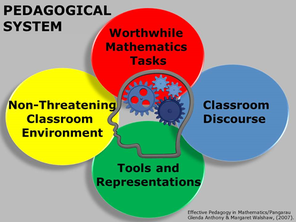
Below, you'll find a MS-Form (open for duplication; link provided) that can be used to gather students' perspective on teaching and learning. The form has been designed with the Pedagogical System for Mathematics in mind, but I think you'll find that many of the prompts can be modified for other opportunities to collect information concerning students' perspectives on teaching and learning.
This form could be suitable for collecting and determining changes in students' perspectives at key points throughout the course of working towards attaining classroom and/or school goals. If you do not happen to have access to Office 365 tools, I have attached a Word doc of the prompts used in designing the survey.
If you do happen to use the form (or an adaptation), please share some of your observations by commenting to this post or by using the contact form (bottom of this page) to communicate with me directly.
Below, you'll also notice that I've included a teacher-version of this form (open for duplication and Word doc comparison of both teacher and student prompts included; reading levels accounted for in the student version). As explained by Richard Elmore (2009), "[l]ike other skills, learning to see and hear the particulars of teaching practice requires practice. Like a muscle, it gets stronger with repetition and practice. The best way to strengthen the observation muscle is to observe lots of classrooms." Although this reference might relate more to observations school leaders could make during walkthroughs, I believe that teacher learning groups can leverage this form (and practice) to aligning and monitoring their own moves, in a mutual manner, with the outcomes of the student survey (and subsequent, shared/collaborative planning that is borne out of the analysis and interpretation of this data).
| student survey prompts-leading learning together through the pedagogical system.docx |
| teacher-student survey prompts-pedagogical system for teaching and learning.docx |
Before planning the first iteration of cycles of inquiry (and setting an if-then statement), I would suggest analyzing the data with students (i.e., StaR) in a learning team setting to identify trends in students' perspectives (i.e., conveying strengths, needs, and uncertainties). In addition to this, try to explore what research currently suggests regarding responsive pedagogy to these areas of strength and need.
With an if-then statement prepared for your first cycle, work together to implement the remaining act, assess, and reflect stages--diligently monitoring the process, and re-iterating with reflection informing next steps. As you continue to move through the process, do be sure to continue training StaR students in collaborative inquiry and sharing the responsibility of working through the stages of the school improvement process.
V) ACT: Process for School Improvement Planning for Student Achievement, Engagement & Well-Being
Implementing the plan and responding to students can be done in a variety of manners--from applying a new strategy to implementing initatives of greater scale. Recently, a pedagogical framework for addressing improvement in teaching and learning mathematics is that of a Thinking Classroom (Liljedahl, 2016).
Liljedahl describes a Thinking Classroom as "...a classroom that is not only conducive to thinking but also occasions thinking, a space that is inhabited by thinking individuals as well as individuals thinking collectively, learning together, and constructing knowledge and understanding through activity and discussion. It is a space wherein the teacher not only fosters thinking but also expects it, both implicitly and explicitly." More information concerning research on a Thinking Classroom can be found here.
Upon closer examination, you'll find that the elements of a Thinking Classroom intersect with much ongoing research and application of research to practice in the teaching and learning of mathematics. Below, a tweet of the elements (and stages of their application) has been included for your perusal. The tweet recounts using the elements as an anchor for discussion--honoring student voice in assessing the impact of intentional moves--in the classroom of Ottawa-based educator, Alex Overwijk.
| Pedagogical System Meets a Thinking Classroom Above, you'll recall how the Pedagogical System had been used to design both student and teacher surveys (i.e., for collecting perceptual data and serving as an assessment tool, respectively). Lately, I’ve been contemplating the systems-level thinking that our district (and others in Ontario) are occasioning through their planning and monitoring of their Renewed Math Strategy (RMS) initiatives. |
Given the growth in implementation of thinking classroom models and its potential intersection with other aspects of mathematics teaching and learning, I felt that a ‘lens’ through which professionals could further inquire into their practice would be to engage this system through building thinking classrooms.
To help guide your learning team's work, I have built and included a tool that you might consider using to monitor the application and development of each of the Thinking Classroom elements (i.e., as they relate to the various domains of the Pedagogical System). These elements could help form the basis of your if-then; serve as pedagogical moves in practice; and comprise success criteria you could monitor for impact upon student learning (Note: A sample form for monitoring student learning (Upper Canada DSB) has been included in next section).
If you do happen to use the tool, please share some of your observations by commenting to this post or by using the contact form (bottom of this page) to communicate with me directly.
| school_improvement_through_a_thinking_classroom_–_professional_learning_template_for_learning_teams__mathematics_.pdf |
| monitoring_plan_template.docx |
You might choose to anchor your team's reflection to the following prompts (Upper Canada DSB Principal, Teresa Polite, 2016-17 RMS)
- Was the goal achieved?
- Why? What, specifically, made a difference?
- How do you know? What does your assessment data tell you?
- What other assessment data did you gather?
- Did all of your students show progress?
Following this, set your sights on next steps--i.e., connecting your assess-reflect to determining an if-then statement for your next cycle of student inquiry with StaR students.
- Where do you think teaching and learning needs to go next?
- What do you think might help students?
- What do you think we should learn more about or try out in the classroom to foster growth in students' learning and your learning?
If you're working on or are considering incorporating student voice into your school's inquiry-based, improvement planning processes, please feel free to share your thoughts and/or learning here (i.e., either as a comment or share using the contact form, below).
All the best to you and your learning teams in making 2018 a "Year of Student Agency," growing participation and establishing partnerships that will move student voice to action.
Professionally Yours,
Chris Stewart, OCT
Learning Partner, Upper Canada DSB
Founder & Educational Consultant, Flipping the Focus
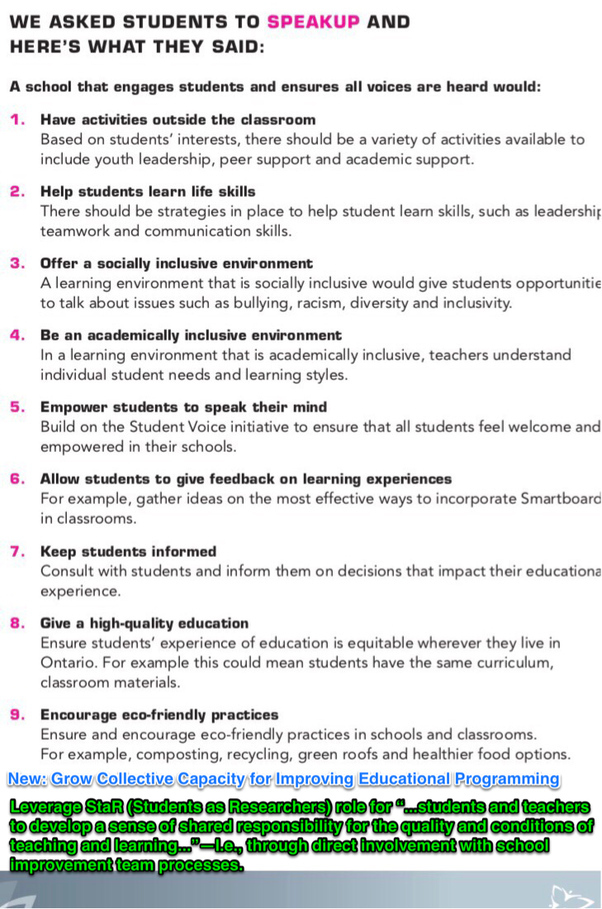
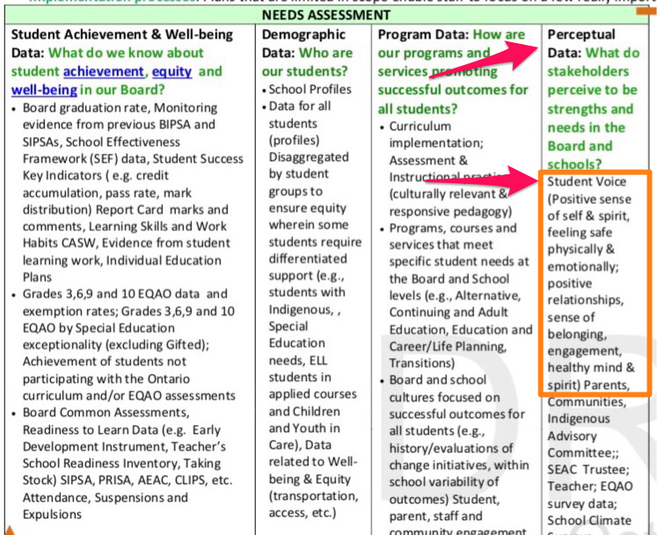
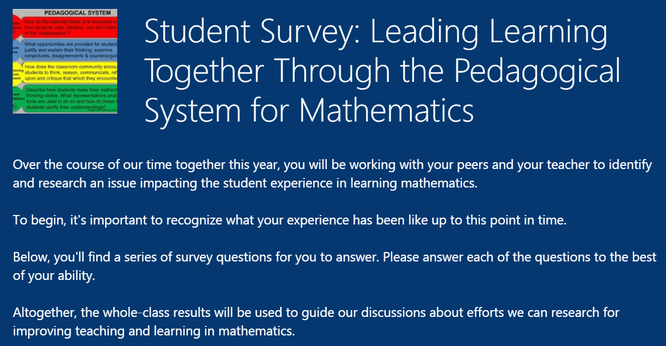
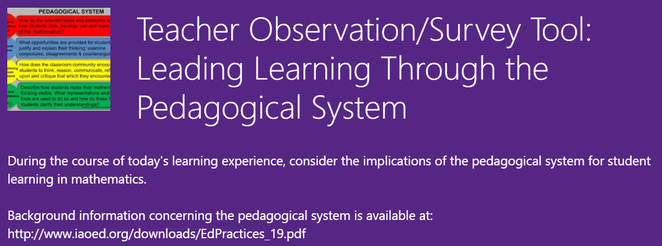
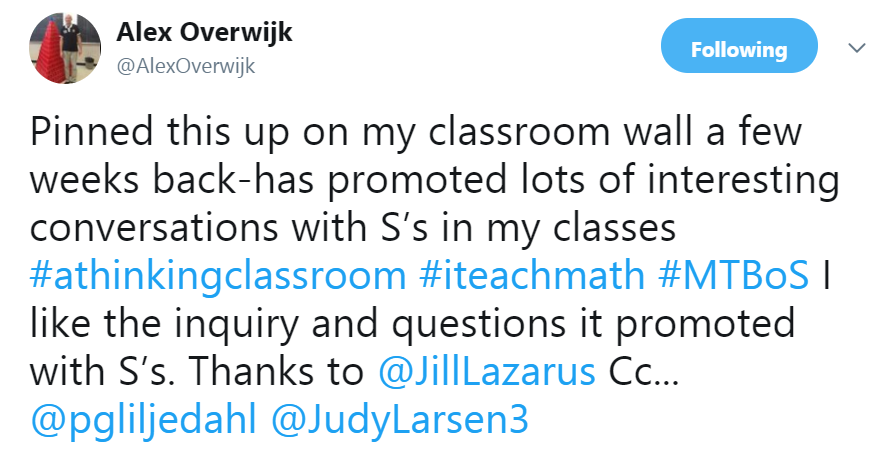
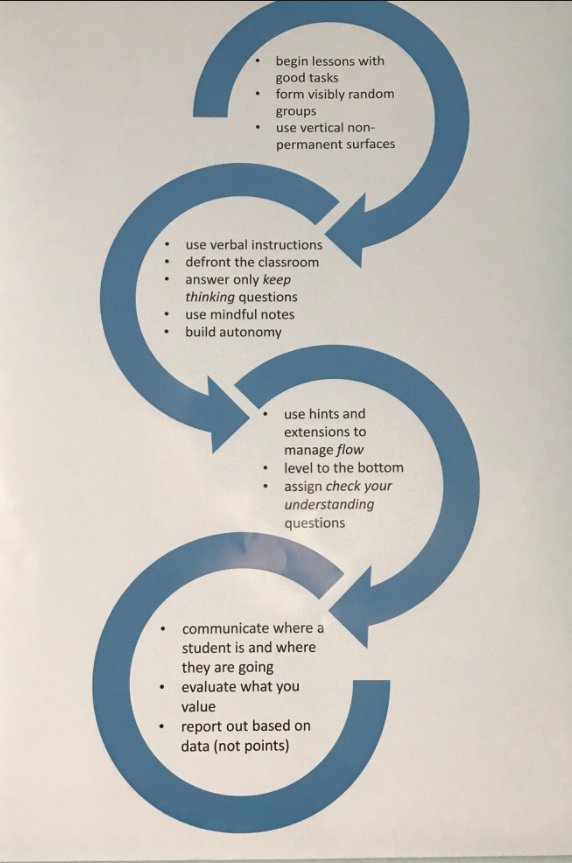
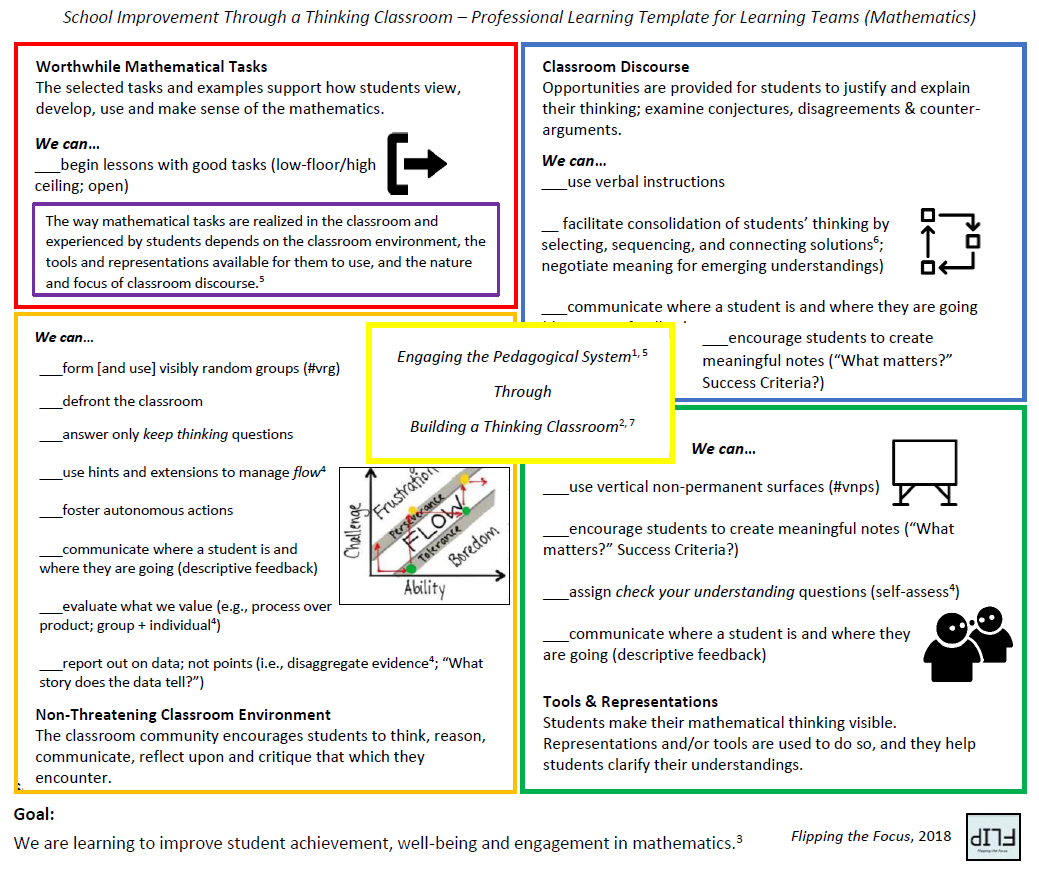
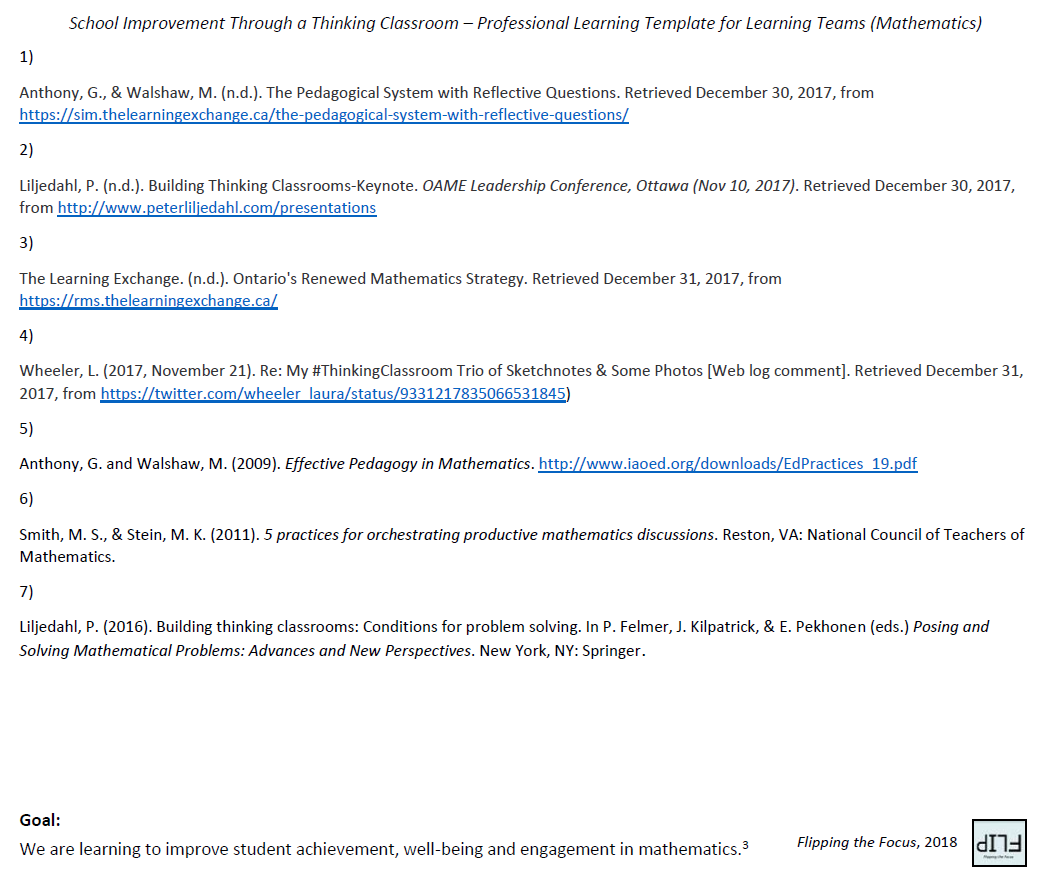
 RSS Feed
RSS Feed


